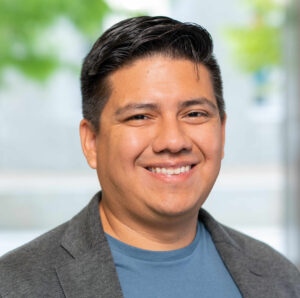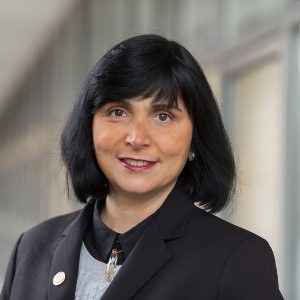
Luc Steels
Barcelona Supercomputing Center
(ES)
Keynote:
Encounters with Alien Minds
Short Bio
Luc Steels studied linguistics at the University of Antwerp (Belgium) and computer science at the Massachusetts Institute of Technology (USA). His main research field is Artificial Intelligence covering a wide range of intelligent abilities, including vision, robotic behavior, conceptual representations and language. In 1983 he became a professor of computer science at the University of Brussels (VUB). He has been co-founder and chairman (from 1990 until 1995) of the VUB Computer Science Department (Faculty of Sciences). He founded the Sony Computer Science Laboratory in Paris in 1996 and became its first director. Currently he is ICREA research professor at the Institute for Evolutionary Biology(CSIC,UPF). Steels has participated in dozens of large-scale European projects and more than 30 PhD theses have been granted under his direction. He has produced over 200 articles and edited 15 books directly related to his research. During the past decade he has focused on theories for the origins and evolution of language using computer simulations and robotic experiments to discover and test them.

Aldo Gangemi
University of Bologna &
National Research Council (IT)
Keynote:
Grounding the Shoggoth
Short Bio
Aldo Gangemi is full professor at University of Bologna, and associate researcher at Italian National Research Council, Rome. He has co-founded the Semantic Technology Lab at ISTC-CNR. His research focuses on Semantic Technologies as an integration of methods from Knowledge Engineering, the Semantic Web, Linked Data, Cognitive Science, and Natural Language Processing. His theoretical interests concentrate upon the representation and discovery of knowledge patterns from data, ontology, natural language, and cognition, across multiple application domains. He has published more than 200 papers in international peer-reviewed journals, conferences and books, and seats as EB member of Semantic Web, Applied Ontology, and Web Semantics journals.

Frank van Harmelen
Vrije Universiteit Amsterdam
(NL)
Keynote:
The K in ‘neuro-symbolic’ Stands for Knowledge
Short Bio
Frank van Harmelen is professor in Knowledge Representation and Reasoning at the VU University Amsterdam. He has been involved in the Semantic Web research programme since it’s inception in the late ’90s. He is one of the co-designers of the W3C ontology representation language OWL, and was involved in the design of Sesame, one of the most widely used RDF repositories world wide. He is co-author of the Semantic Web Primer, the first textbook on Semantic Web technologies, now translated into 5 languages. He was scientific director of the Large Knowledge Collider (LarKC), which aimed to build a platform for very large scale distributed reasoning. Besides research into the fundamental questions such as inconsistency, scalability, heterogeneity, and dynamicity, he is also involved in a wide variety of applications of semantic technologies, among others in medicine, the pharmaceutical industry, scientific publishing and e-science. His work on the Sesame triplestore received the 2012 “ISWC 10 year impact award”. He was elected as member of the European Academy of Science in 2014 and of the Dutch Royal Academy of Sciences in 2017.

Catia Pesquita
University of Lisbon &
LASIGE Computer Science and Engineering Research Centre (PT)
Keynote:
The Price of Ignorance: what do we lose when we only care about data but not knowledge
Short Bio
Catia Pesquita is an Associate Professor at the University of Lisbon, where she leads the Research Line of Excellence in Health and Biomedical Informatics at LASIGE. Her research work is dedicated to knowledge engineering and artificial intelligence, particularly in the biomedical and clinical domains, supported by her multidisciplinary background. She has made significant contributions in data analytics and integration with ontologies and knowledge graphs, publishing in high impact venues including ISWC, ESWC, Semantic Web Journal, PLoS Computational Biology, BMC Bioinformatics, Journal of Biomedical Semantics, among others. She is the General Chair for ESWC 2023 and has held Program Chair and Track Chair roles at ISWC and ESWC conferences. She is also an Associate Editor at BMC Bioinformatics. She has led and collaborated in multiple national and international research projects where she explored the role of ontologies and knowledge graphs in life sciences and health research. Her research team and collaborators develop AML, an award-winning software for ontology matching.

Enrico Motta
Knowledge Media Institute (UK) &
University of Bergen
(NO)
Keynote:
How did we get here?… 20 years of the Semantic School
Short Bio
Enrico Motta is a Professor of Knowledge Technologies at the Knowledge Media Institute (KMi) of the UK’s Open University and a Professor II at the Department of Information Science and Media Studies of the University of Bergen in Norway. He has authored about 400 refereed publications and his h-index is 70. His work spans a variety of research areas to do with data science, semantic and language technologies, human-computer interaction, and intelligent systems and robotics. His current work is primarily focusing on i) the integration of common sense reasoning and deep learning to support intelligent sensemaking in robots and ii) the development of innovative solutions for scholarly analytics . These leverage novel techniques in large-scale data mining, semantic technologies and visual analytics to support users in making sense of the academic and industrial research landscape. This work has attracted extensive interest from both academia and the commercial sector, leading to direct funding from the top two international academic publishers, Elsevier and Springer Nature and a Best In-Use Paper Award at ISWC 2022.

Juan Sequeda
data.world
(US)
Keynote:
A Knowledge First World: a knowledge revolution is coming (...or at least there should be one!)
Short Bio
Juan Sequeda is the Principal Scientist at data.world. He joined through the acquisition of Capsenta, a company he founded as a spin-off from his PhD research in Computer Science from The University of Texas at Austin. His goal is to reliably create knowledge from inscrutable data. His research and industry work has been on designing and building Knowledge Graph for enterprise data and metadata management.
Juan has researched and developed technology on semantic data virtualization, graph data modeling, schema mapping and data integration methodologies. He pioneered technology to construct knowledge graphs from relational databases, resulting in W3C standards, research awards, patents, software and his startup Capsenta acquired by data.world in 2019. Juan strives to build bridges between academia and industry as former co-chair of the LDBC Property Graph Schema Working Group, member of the LDCB Graph Query Languages task force, standards editor at the World Wide Web Consortium (W3C) and organizing committees of scientific conferences, including being the general chair of The Web Conference 2023. Juan is the co-author of the book “Designing and Building Enterprise Knowledge Graph” and the co-host of Catalog and Cocktails, an honest, no-bs, non-salesy data podcast.

Maria-Esther Vidal
Leibniz University of Hannover &
TIB-Leibniz Information Centre of Science and Technology (DE)
Keynote:
Knowledge Graphs- Are We Ready to Catch the Boat?
Short Bio
Prof. Dr. Maria-Esther Vidal is a professor at the Institute of Data Science at the Leibniz University of Hannover (LUH). She leads the Scientific Data Management group at the TIB-Leibniz Information Center of Science and Technology and the Data Science Institute at LUH. She is also a member of the L3S Research Center at LUH. She has contributed to data management with semantic data integration and query processing methods over various data infrastructures, e.g., the Web of data. Maria-Esther is a co-author of more than 220 peer-reviewed articles on the Semantic Web, Databases, Bioinformatics, and Artificial Intelligence. She has been awarded the Science Award on Responsible Research by Stifterverband (Germany 2020), and the Leibniz Best Minds: Programme for Women Professors has partially supported her research since 2021. Maria-Esther is also actively shaping her research communities. She has been an editorial board member of renowned journals (e.g., Journal of Web Semantics) and general chair, co-chair, and senior reviewer of major scientific events (e.g., WWW, ISWC, and AAAI). Under her direction, her team has developed technologies of predominant relevance in the whole process of knowledge graph creation from heterogeneous data and query processing. She is an expert in several advisory boards, summer schools, and doctoral consortiums. She has advised more than 30 doctoral students, and 120 Master’s and bachelor’s students in Computer Science. She has been a doctoral and habilitation committee member in France, Italy, the Netherlands, Germany, Ireland, Argentina, Uruguay, and Venezuela. She is leading data management tasks in national and international projects (e.g., EU H2020 CLARIFY, IASIS, and BigMedilytics) and principal investigator of Marie Sklodowska-Curie doctoral networks (e.g., WDAqua and NoBIAS). She has been a visiting professor at universities (e.g., Uni Maryland, UPM Madrid, UPC, KIT Karlsruhe, and Uni Nantes).